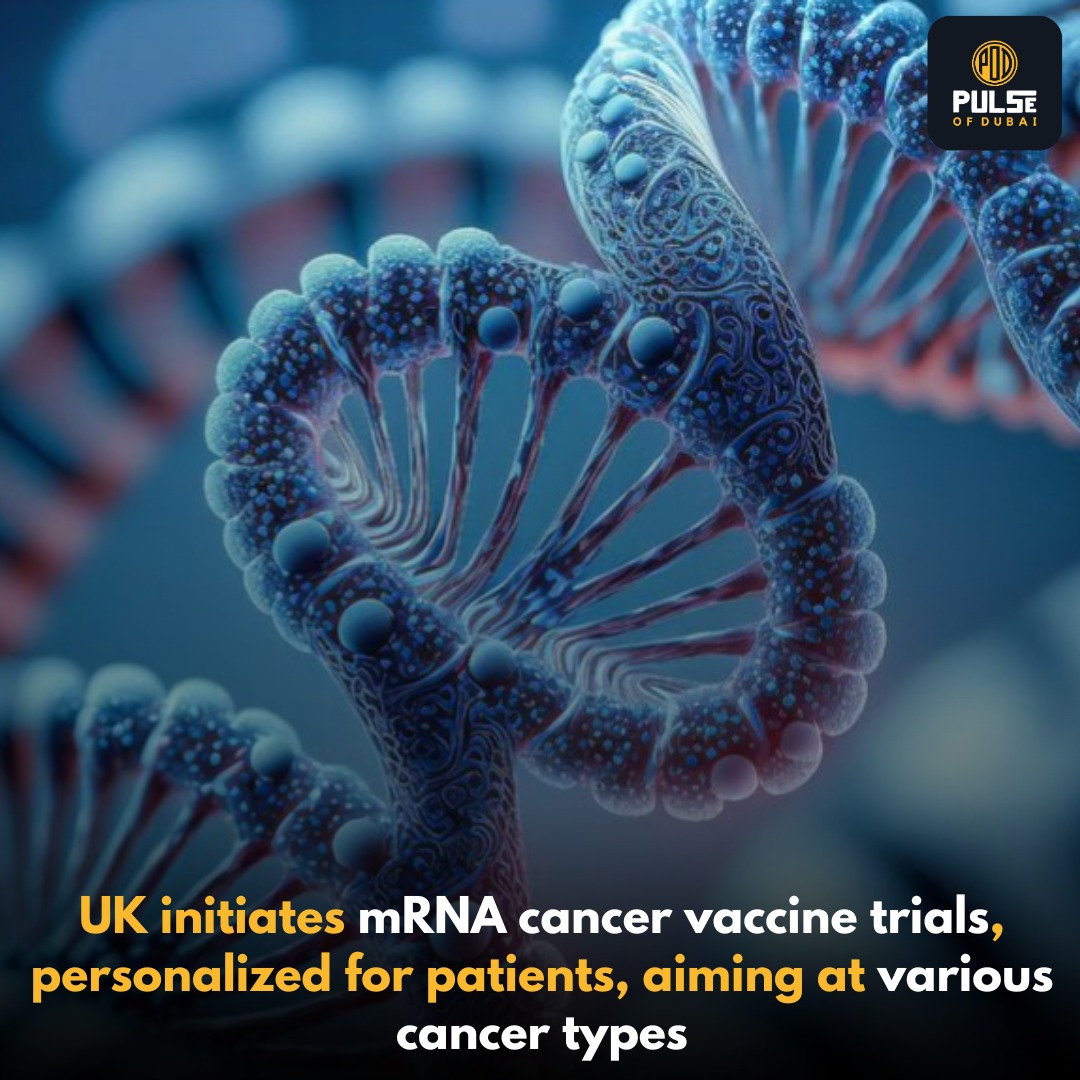The United Kingdom has initiated groundbreaking clinical trials for mRNA cancer vaccines, marking a significant advancement in personalized medicine and cancer treatment. These trials represent a pioneering approach to cancer immunotherapy, utilizing mRNA technology to tailor vaccines to individual patients’ DNA and targeting multiple types of cancer simultaneously. The early results of these trials are showing promising outcomes, offering hope for more effective and personalized cancer therapies in the future.
mRNA vaccines work by delivering genetic instructions to the body’s cells, prompting them to produce specific proteins that stimulate an immune response against cancer cells. Unlike traditional vaccines, which introduce weakened or inactivated forms of pathogens to trigger immunity, mRNA vaccines leverage the body’s own machinery to generate targeted immune responses.
By tailoring these vaccines to the unique genetic profiles of individual patients, researchers aim to enhance their efficacy and minimize potential side effects. This personalized approach allows for the development of vaccines that are precisely matched to the genetic characteristics of each patient’s cancer, increasing the likelihood of a robust immune response and better treatment outcomes.
Furthermore, by targeting multiple types of cancer, these mRNA vaccines have the potential to address the complexities of heterogeneous tumors and overcome the challenges of cancer diversity. This versatility makes them valuable tools in the fight against various malignancies, offering a more comprehensive approach to cancer treatment.
The early results from the UK’s mRNA cancer vaccine trials are encouraging, demonstrating the feasibility and effectiveness of this innovative approach. Patients participating in the trials have shown promising responses to the vaccines, with some experiencing tumor regression and improved outcomes. These preliminary findings underscore the potential of mRNA vaccines to revolutionize cancer therapy and pave the way for more personalized and effective treatment strategies.
One of the key advantages of mRNA vaccines is their relative ease of administration, requiring only blood and tissue samples from patients to determine eligibility. This minimally invasive approach streamlines the patient screening process and facilitates broader access to personalized cancer treatments.
Overall, the launch of mRNA cancer vaccine trials in the UK represents a significant milestone in the quest for more effective and tailored cancer therapies. With promising early results and ongoing research efforts, these trials hold the promise of transforming the landscape of cancer treatment, offering hope to patients and clinicians alike.









